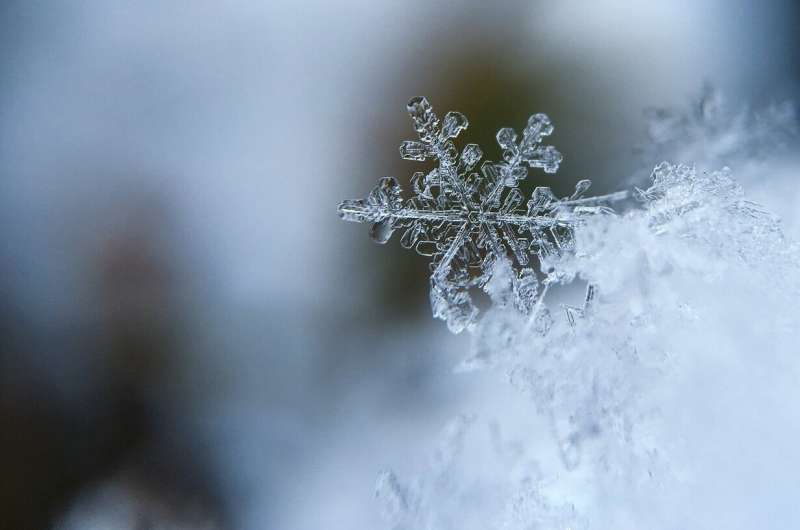This article has been reviewed according to Science X's editorial process and policies. Editors have highlighted the following attributes while ensuring the content's credibility:
fact-checked
reputable news agency
proofread
Great Lakes set a record for low ice in February, likely leading to warmer seasons for the rest of the year

In an ordinary Chicago winter, ice fishermen would still be scampering out onto the frozen stretches of Lake Michigan, toting fishing rods, drills—even pop-up shelters.
Swimmers in sleek wet suits would be spicing up their already bracing morning workouts by climbing on icebergs or posing on clear-as-glass ice sheets.
But this is no ordinary winter.
Due to naturally occurring climate patterns as well as climate change, ice coverage on the Great Lakes reached a record low in mid-February, with only 7% of the five lakes' surface covered, rather than the expected 35% to 40%, according to Jia Wang, an ice climatologist at the National Oceanic and Atmospheric Administration's Great Lakes Environmental Research Laboratory.
That's the lowest ice coverage for the date of Feb. 13 since 1973, when the National Oceanic and Atmospheric Administration began keeping records.
"The significance of this is long-lived, I believe," said Wang. "Almost the entire ice season this year, the lake was wide open, except for a little bit along the coast. The impact will be, we will have a warmer spring and warmer summer and even warmer fall—and that will delay ice formation in the coming winter."
Climate change played a role in the low ice coverage, Wang said, but in this case, naturally occurring surface temperature patterns on the Atlantic and Pacific oceans had an effect that was several times more powerful than warming caused by humans.
These patterns can alter the path of winds blowing in from the west, bringing the Great Lakes either relatively warm winter air from the western United States, or cold air from the Arctic.
Illinois State Climatologist Trent Ford said he didn't disagree with Wang's assessment that patterns of climate variability are playing the lead role in low ice cover. But he emphasized that, due to climate change, these natural patterns are working in a world with warmer baseline temperatures.
According to NOAA, the average January temperature across the contiguous United States was 35.2 degrees, more than 5 degrees above average and the sixth-warmest January on record.
Ford said that major climate assessments have found that warmer winters may lead to lower ice cover on the Great Lakes.
A previous study co-authored by Wang found that Great Lakes ice cover decreased by 71% between 1973 and 2010.
Low ice cover causes higher waves and shoreline erosion, including the loss of beaches. Without ice to protect them from winter waves, juvenile fish in coastal waters are less likely to survive, Wang said.
In Lake Michigan, warmer waters benefit the invasive quagga mussel that's already harming native mussels and fish, clogging water intakes and damaging docks and boats.
And there are more immediate effects. Chicago Fishing School founder and guide Johnny Wilkins said he only went ice fishing twice this season on the Chicago harbors of Lake Michigan, as opposed to his usual six to eight times.
"This (year) is definitely a stinker for ice," said Wilkins. "I had to cancel trips. I'm not going to take people out when it's not safe."
Maximum Great Lakes ice coverage is typically seen between mid-February and early March.
Steve Hernan of Evanston, who swims in Lake Michigan year-round, said that this season he's wearing a wet suit with short sleeves and shorts, as opposed to last year's full-length suit. It's easier to move his arms and legs, he said, but he's missing the ice formations of a typical winter.
Normally at this time of year, he and friends at Open Water Chicago, an outdoor fitness group that swims near North Avenue Beach, enjoy climbing Lake Michigan icebergs or swimming out to giant ice sheets.
If the low ice cover continues, he said with a laugh, he may have to move to northern Wisconsin.
"There are some things that are deal-breakers, right? And that's one of them," he said. "Gotta be able to climb on ice at some point during the year."
2023 Chicago Tribune.
Distributed by Tribune Content Agency, LLC.




















